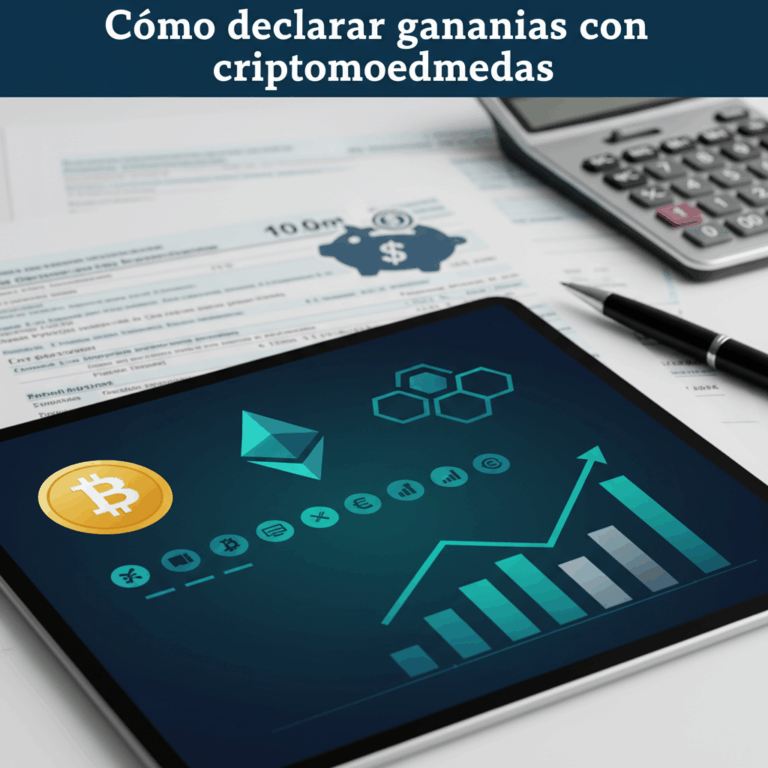Tax obligations with cryptocurrencies in Spain
In Spain, declaring profits earned with cryptocurrencies is a tax obligation for any tax resident. It doesn't matter the amount or the currency used in the transaction.
These obligations cover both capital gains and losses generated, and it is necessary to include them in the Income Tax Return (IRPF) from the first successful transaction.
Tax residence and obligation to declare
Tax residency determines the obligation to declare any cryptocurrency transactions. Residents must report all capital gains or losses to the Tax Agency.
Regardless of whether the transactions are carried out in euros or in exchanges between cryptocurrencies, the obligation to declare is complete from the first transaction.
It is essential to maintain a detailed and up-to-date record of all transactions to justify the declared results and comply with the tax authorities.
Transactions and types of earnings subject to reporting
All transactions that generate capital gains or losses with cryptocurrencies are subject to declaration, such as buying, selling, exchanging, staking or airdrops.
To calculate the gain or loss, the acquisition value and the transfer value in euros are compared, with the difference reflected in the declaration.
Even if it is not converted to fiat currency, market values must be used to value the transactions carried out with cryptocurrencies on each purchase and sale date.
Calculation and taxation of capital gains
Calculating capital gains or losses with cryptocurrencies is based on the difference between the acquisition value and the transfer value. It is essential to record each transaction.
This history must include dates and values in euros, even if the cryptocurrency has not been converted to fiat currency to justify the declaration to the Tax Authorities.
Calculation of capital gains and losses
To determine the capital gain or loss, the acquisition value of each cryptocurrency transaction is subtracted from the transfer value, considering the exchange rate to euros.
It is important to keep complete records of transactions to facilitate reporting and avoid discrepancies in the event of a possible tax audit.
The operations include buying, selling, exchanging, staking or other forms of obtaining profit that must be reflected in the personal income tax return.
Applicable tax rates in Personal Income Tax (IRPF)
Capital gains derived from cryptocurrencies are taxed under the IRPF brackets, starting at 19% for gains up to 6,000 euros and increasing according to the amount.
Tax rates increase progressively: 21% for up to €50,000, 23% for up to €200,000, 27% for up to €300,000, and 28% for amounts over €300,001.
These rates directly affect the tax burden on profits earned, which is why a rigorous calculation and correct presentation are key.
Income derived from mining, staking and airdrops
Income from mining, staking, and airdrops is considered income derived from work, economic activities, or movable capital, as the case may be.
These incomes must be declared separately in the general taxable base of the IRPF, with specific regimes applied for each type of income.
Correctly recognizing these incomes is essential to comply with regulations and avoid penalties related to undeclared income.
Tax models for declaring cryptocurrencies
Declaring cryptocurrencies in Spain requires the use of several tax forms that allow you to inform the Tax Agency about transactions and balances.
These models facilitate compliance, classified according to the nature of the operations and the location of the cryptocurrencies, to ensure tax transparency.
Models 100, 172, 173 and 721: uses and differences
He Model 100 It is the general income tax return (IRPF) where capital gains and losses derived from cryptocurrencies are included.
He Model 172 It serves to report the balance of virtual currencies at the end of the fiscal year, facilitating the control of assets in cryptocurrencies.
He Model 173 It is used to declare transactions carried out on foreign platforms, helping the Tax Agency to detect movements outside of Spain.
Finally, the Model 721 It is mandatory if the total balance of cryptocurrencies abroad exceeds 50,000 euros as of December 31, to report on assets abroad.
Recommendations and consequences of non-compliance
It is essential to file your cryptocurrency declaration within the established deadline to avoid penalties and problems with the tax authorities. The process is primarily carried out online.
Proper planning and organization of tax information ensures compliance and minimizes risks associated with errors or failure to declare.
Filing and processing period at the Tax Agency
The personal income tax return for cryptocurrencies is generally filed between April and June, following the official calendar of the Tax Agency each year.
The process is done electronically, through the online platform of the Treasury, which facilitates submission but requires respecting dates and technical requirements.
It is recommended to keep all documentation relating to transactions to justify figures and avoid problems in case of inspection.
Penalties and legal risks for not declaring correctly
Failure to declare cryptocurrency earnings can result in significant financial penalties and legal problems for the taxpayer.
The penalties include fines proportional to the undeclared amount, surcharges, and even possible criminal action in cases of proven tax fraud.
Given the complexity of the regulations, it is advisable to seek advice from experts to ensure a correct declaration and avoid adverse consequences.






